Links to external sources may no longer work as intended. The content may not represent the latest thinking in this area or the Society’s current position on the topic.
The offline brain: understanding memory consolidation and reconsolidation
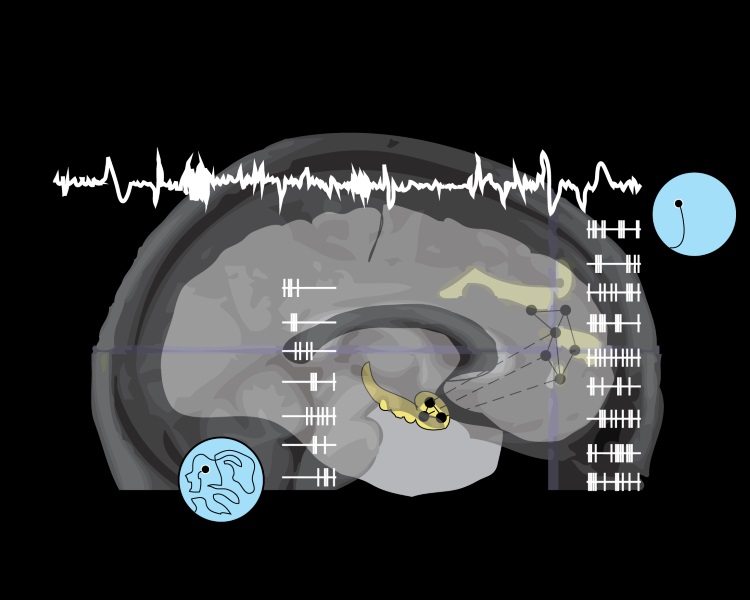
Theo Murphy international scientific meeting organised by Professor Edwin Robertson and Dr Lisa Genzel.
Once formed memories continue to be processed ‘off-line’ ensuring not only their long-term retention, but also allowing them to be changed by older memories, and by novel information. Our meeting speakers are world-leading scientists, whose talks complement panel-discussions of off-line processes at every level of biological analysis, to give a timely synthesis of the field, and articulate key remaining challenges.
The schedule of talks, abstracts and speaker biographies are available below.
Attending this event
This meeting has taken place.
Recorded audio of the presentations are available below.
Enquires: Contact the Scientific Programmes team.
Organisers
Schedule
Chair
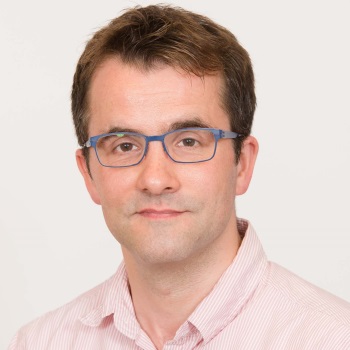
Professor Edwin M Robertson, Institute of Neuroscience and Psychology, University of Glasgow, Scotland

Professor Edwin M Robertson, Institute of Neuroscience and Psychology, University of Glasgow, Scotland
Edwin M Robertson holds the Chair in Brain & Cognitive Sciences at the Institute of Neuroscience & Psychology in Glasgow, UK. He uses a combination of behavioural analysis, brain imaging and brain stimulation to provide insight into the off-line processing of human memory. His work has revealed how the fate of a memory is controlled, the importance of brain state for this control, the degenerate organization of offline processing, and how the interactive organization of memories enables the creation of flexible and generalisable knowledge. Prior to his current position he held a number of faculty positions at Harvard Medical School, was a graduate and a medical student at the University of Oxford, and prior to that, was an undergraduate at the University of Cambridge.
| 09:00 - 09:05 | Welcome by Royal Society | |
|---|---|---|
| 09:05 - 09:25 |
Same or seperate? Functions and mechanisms of memory replay during sleep and wake
Sleep strengthens and stabilizes newly acquired memories in an active process of system consolidation. This process is assumed to rely on covert reactivations of new memories that occur spontaneously after learning, mainly during slow-wave sleep (SWS), but can also be externally triggered by learning-associated memory cues. In a series of experiments, we show that the application of learning-associated odor cues during sleep resulted in an immediate stabilization of new memories, whereas similar odor reactivations in the wake state induced memory labilization. Functional magnetic resonance imaging revealed different activation patterns following reminder presentation during sleep and wakefulness. Moreover, different types of reminders (complete/incomplete) exerted different effects on memory during sleep and wakefulness. While in the wake state, only incomplete reminders but not complete reminders labilized the memory traces, both the incomplete reminder and the complete reminder stabilized memories during sleep. This evidence collectively suggests that reactivation has different effects on memory during wakefulness and sleep, presumably serving different functions for the dynamic long-term storage of memory. 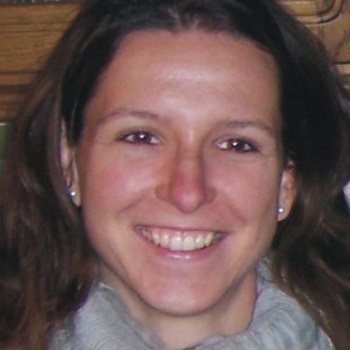
Dr Susanne Diekelman, University of Tubingen, Germany

Dr Susanne Diekelman, University of Tubingen, GermanyDr Susanne Diekelmann is a Post-Doc and Research Associate at the Institute of Medical Psychology and Behavioural Neurobiology at the University of Tübingen. She studied Psychology and Philosophy at the Dresden University of Technology and at King’s College London. In 2011, she obtained her PhD at the University of Lübeck under the supervision of Jan Born. Her main research interest is on the functional role of sleep for processes of learning and memory formation, with a particular focus on memory reactivation during sleep. Her research has been published in a number of high-impact journals, including Nature Reviews Neuroscience, Nature Neuroscience, and Journal of Neuroscience. Beyond her research on sleep and memory, Susanne has a strong interest in philosophical and ethical questions arising from neuroscience research, particularly concerning cognitive enhancement. |
|
| 09:25 - 09:45 |
Sleep structure and replay across species
The majority of sleep behavioural research is conducted in humans, results which are complemented by extensive animal experiments in rodents. Here we present neural and behavioural evidence for a role of sleep in sensorimotor vocal learning in juvenile and adult songbirds, and for perceptual learning in adult songbirds (the latter mostly behavioural work). We show deep similarities of the behavioural results in songbirds and humans, highlight similarities and differences between the songbird and rodent results, and discuss the implications of these similarities and differences. We show preliminary evidence that within Aves, the complex pattern of sleep observed in songbirds extends at least to parrots. Knowing the extent to which the behavioural and neurophysiological results apply broadly, beyond mammals and perhaps far across the animal kingdom, can open opportunities for developing new advantageous model systems to gain deeper insights into the neurobiology of sleep. Our results, in complement with recent data from reptiles and other poikilotherms and invertebrates, suggest the possibility of a broad diversity of species that exhibit sleep dependent processing. This places constraints on neuronal network models to explain these behaviours. 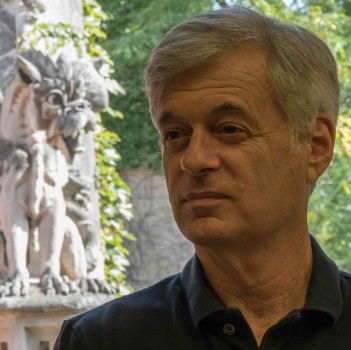
Professor Daniel Margoliash, University of Chicago, USA

Professor Daniel Margoliash, University of Chicago, USADr Margoliash is interested in brain mechanisms of behaviour, focusing on plasticity and vocal behaviour in songbirds, and more recently in humans. One set of studies has explored the role of sleep in developmental song learning and adult song maintenance. Single cell neuronal replay during sleep is a feature of certain song system forebrain neurons, providing a rare opportunity to examine the neurobiology of sleep dependent motor skill learning. Vocal production is efficiently described in a non-linear dynamical systems framework. Ongoing work examines neuronal representations and plasticity in this framework, for example the recently described novel form of information representation, such that a bird's song is mapped onto uniform intrinsic properties in a population of neurons, and feedback errors rapidly inducing inhomogeneity in that representation. Dr Margoliash received his BSc, MSc and PhD from Caltech, completing his doctoral research on auditory responses of song system neurons in the laboratory of Masakazu (Mark) Konishi. He then conducted postdoctoral studies on echolocating bats with Nobuo Suga in Washington University (St. Louis) before joining the faculty at the University of Chicago. He is professor in the Department of Organismal Biology and Anatomy and the Department of Psychology. |
|
| 09:45 - 10:05 |
Sleep replay and memory consolidation in the hippocampus and amygdala
The hippocampus and the amygdala are two structures required for emotional memory. The hippocampus, through place cells, is believed to encode the spatial or contextual part of the memory. During slow-wave sleep, the activity of place cells is replayed in the same order as during the preceding learning epoch. These reactivations specifically occur during local field potential (LFP) short oscillatory events associated with highly synchronous neuronal activity called “ripples”. The group have shown previously that the specific suppression of ripples during sleep impairs performance on a spatial task, underlying their crucial role in memory consolidation. On the other hand, the amygdala processes the emotional valence of an event. Disrupting activity in the basolateral amygdala (BLA) immediately after training impairs performance on emotional tasks like contextual fear conditioning. However, how the amygdala and the hippocampus interact to consolidate an emotional event is yet unknown. To study that, the group designed a new task where the rats learn the location of an aversive stimulus. Using large scale simultaneous neuronal ensemble recordings in the hippocampus and BLA, we found coordinated reactivations between the two structures during sleep following training. Moreover, these reactivations specifically involve a small subset of BLA neurons that are modulated during hippocampal ripples and this modulation increases during sleep ripples following training. Hippocampal ripples during sleep thus emerge as a crucial time windows for intra-hippocampus and cross-structure reactivations sustaining the consolidation of spatial and emotional memories. 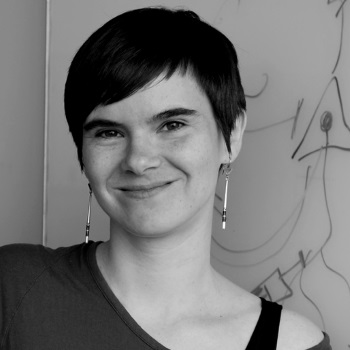
Dr Gabrielle Girardeau, NYU Langone Medical Center, USA

Dr Gabrielle Girardeau, NYU Langone Medical Center, USAGabrielle Girardeau is a post-doctoral fellow in Dr Buzsaki's lab at the NYU Langone Medical Center in New York, USA. Her research focuses on the network mechanisms of memory consolidation, with a specific emphasis on sleep-dependent processes. In her current work, she is dissecting neuronal interactions between the amygdala and the hippocampus to better understand the emotional component of memory consolidation. She uses large-scale in-vivo recordings of neural ensembles in freely moving rodents to study how intra and cross-structural coordinated neural activity sustains the long-term stabilization of memories. Dr Girardeau is currently a Charles H. Revson Foundation Biomedical Fellow. Dr Girardeau received her PhD from the College de France/University Pierre et Marie Curie, (Paris, France), where she contributed to unravel a key mechanism of hippocampus-dependent memory consolidation during slow-wave sleep. For this work, she was awarded the Best Thesis Award from the French Society for Neuroscience, The Major Advances in Biology Award from the French Academy of Science and a MaxPlanck/CNRS Neuroscience Award. Dr Girardeau is a member of the Society for Neuroscience (SfN) and the French Society for Neuroscience. |
|
| 10:05 - 10:25 |
Mismatch, labilization and reinforcement during memory reactivation
Due to their opposite behavioural outcomes, memory reconsolidation and extinction have usually been considered as separate entities, despite being induced by similar reactivation protocols. Based on modelling and pharmacological data, the group will argue that the two processes nevertheless seem to involve similar sets of plasticity mechanisms. One of these sets seems to be pharmacologically similar to the one involved in initial consolidation and Hebbian plasticity, while the second appears to be more involved with the labilization of existing memories and synaptic changes. Moreover, memory labilization mechanisms resemble those involved in forms of homeostatic plasticity, such as synaptic scaling. With this in mind, the group will discuss whether memory destabilization during reactivation might be a consequence of homeostatic-like plasticity induction, and why mismatch between learning and re-exposure could lead this to happen. On this basis, the group will argue that the field of memory updating might benefit from a paradigm shift in which reconsolidation and extinction, as well as online and offline reactivation, are viewed not as fully distinct processes but as different instantiations of common plasticity systems. 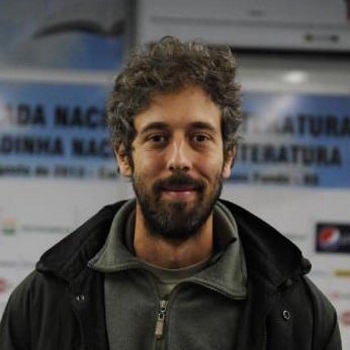
Dr Olavo Amaral, Federal University of Rio de Janeiro, Brazil

Dr Olavo Amaral, Federal University of Rio de Janeiro, BrazilOlavo Amaral is a professor at the Federal University of Rio de Janeiro, Brazil, holding a medical degree and a PhD in Biochemistry from the Federal University of Rio Grande do Sul. As a memory researcher, he is particularly interested in understanding memory labilization processes occurring in reconsolidation, extinction and forgetting. For this means, he works with behavioural studies in rodents and with simple computational models of neural networks, trying to put together findings at the molecular and circuit levels. He is also interested in initiatives to improve the reproducibility of behavioural neuroscience studies, particularly through the use of systematic reviews and meta-analysis. Finally, he is interested in the relationships between neuroscience and psychiatric nosology, and currently works on a non-fiction book dealing with the shifting frontiers between health and illness in contemporary society. |
|
| 10:25 - 10:45 | Coffee Break | |
| 10:45 - 11:30 |
Discussion Session
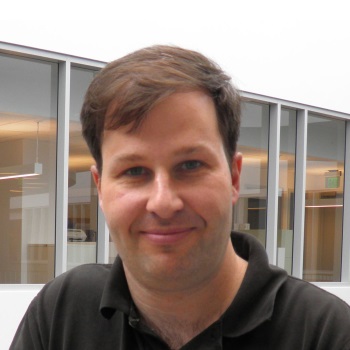
Professor Loren Frank, HHMI and University of California, USA

Professor Loren Frank, HHMI and University of California, USALoren Frank is Howard Hughes Medical Institute Investigator, Co-Director of the Kavli Institute for Fundamental Neuroscience and a Professor in the Department of Physiology at the University of California, San Francisco. He received his BA in Psychology and Cognitive studies from Carleton College, his PhD in Systems Neuroscience and Computation from M.I.T, and did post-doctoral research at Massachusetts General Hospital and Harvard University. His laboratory uses a combination of techniques to study the neural bases of learning, memory and decision-making. Dr Frank has received numerous awards for his scientific discoveries and his mentoring, including fellowships from the Sloan, McKnight and Merck Foundations as well as the Society for Neuroscience Young Investigator Award, the University of Indiana Gill Young Investigator Award, the UCSF Faculty Mentoring Award, and the College Mentors for Kids Inspire Award. |
|
| 11:30 - 12:30 |
Hippocampal neurogenesis and forgetting
Neurogenesis persists throughout life in the hippocampus, and there is a lot of interest in how the continuous addition of new neurons impacts hippocampal memory function. Behavioural studies have shown that artificially elevating hippocampal neurogenesis often facilitates new memory formation. However, since the integration of new neurons remodels existing hippocampal circuits, it has been hypothesized that hippocampal neurogenesis may also promote the degradation (or forgetting) of memories already stored in those circuits. Consistent with this idea, we have recently discovered that elevating rates of hippocampal neurogenesis after memory formation leads to forgetting. This finding changes the way we think about how hippocampal neurogenesis contributes to memory function, suggesting that it regulates a balance between encoding new memories and clearing out old memories. 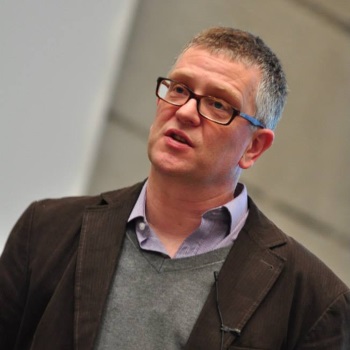
Professor Paul Frankland, Program in Neuroscience and Mental Health, Hospital for Sick children, Toronto, Canada

Professor Paul Frankland, Program in Neuroscience and Mental Health, Hospital for Sick children, Toronto, CanadaPaul Frankland is a Senior Scientist in the program in Neurosciences & Mental Health at the Hospital for Sick Children. He holds a Canada Research Chair in Cognitive Neurobiology, and is appointed as an Associate Professor in the Department of Psychology, Department of Physiology and Institute of Medical Science at the University of Toronto. His research focuses on modelling cognitive function and dysfunction in genetically-engineered mice. In these studies he hopes to characterize the roles of different proteins in neuronal plasticity, how different brain regions contribute to distinct cognitive processes, and how these are altered in disease states. |
|
| 12:30 - 13:30 | Lunch |
Chair
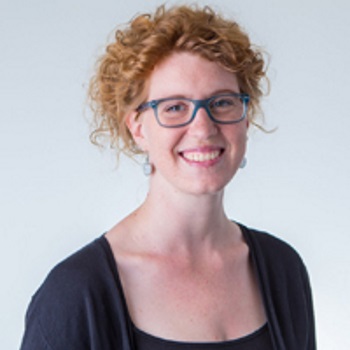
Dr Lisa Genzel, Radboud University, The Netherlands

Dr Lisa Genzel, Radboud University, The Netherlands
Lisa Genzel studied medicine at the Ludwig Maximilian University in Munich and in parallel worked on her thesis on sleep and memory consolidation in humans at the Max Planck Institute of Psychiatry. For her experiments she worked both with healthy subjects as well as psychiatric patients with depression and schizophrenia. As a post-doc she decided to expand into animal research and went to the University of Edinburgh to work with Richard Morris. More recently she received the Society in Science Branco-Weiss-Fellowship to be able to combine human and animal research investigating the basic mechanisms of memory consolidation especially during sleep and now is an Assistant Professor at the Donders Institute in Nijmegen.
| 13:30 - 13:50 |
Transition from retrieval, to reconsolidation, to extinction
For years it was believed that after fear memory has been established, the memory trace is engraved into the physical structure of the brain. But the burgeoning field of neuroscience has convincingly overturned this view by demonstrating that once (fear) memories are retrieved, they may enter a labile, protein synthesis dependent state, rendering it amenable to change. This process of memory reconsolidation may provide a window of opportunity to target emotional memory in patients suffering from anxiety disorders and other related disorders. In this talk a series of experimental studies in humans will be presented demonstrating that disrupting the process of memory reconsolidation by a noradrenergic β-blocker weakens or even eliminates the expression of fear memory. Although the process of memory reconsolidation has the potential to actually neutralize excessive fear memory, we cannot observe the molecular and cellular processes in the human brain underlying either the presence or absence of memory expression. The group can only infer the underlying neurobiological processes from the behavioural, cognitive, physiological or neural read-outs of fear memory. Because there is no one-to-one relationship between these memory expressions and the underlying neurobiological processes, erasure of memory traces cannot be proven. However, by critically testing hypotheses that follow from the reconsolidation conjecture, we may gradually unveil the conditions that govern the transition from simply retrieval, to reconsolidation, to extinction learning. 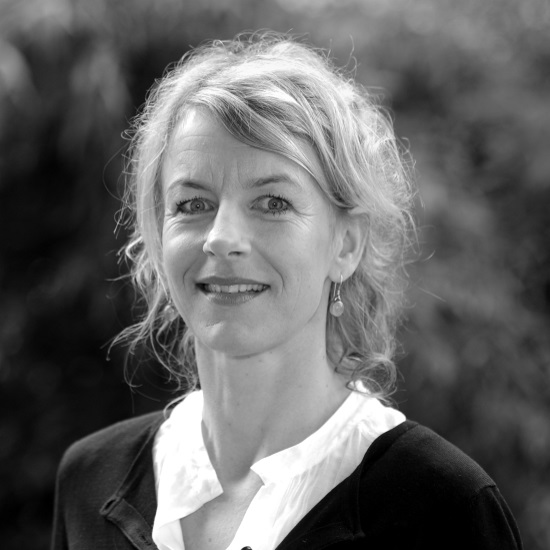
Professor Merel Kindt, University of Amsterdam, The Netherlands

Professor Merel Kindt, University of Amsterdam, The NetherlandsMerel Kindt (1967) is full Professor of Experimental Clinical Psychology at the University of Amsterdam. It is her mission to understand mechanisms of change, and to build on fundamental brain and cognition science in order to shape clinical interventions. In 2008, she started an innovative research programme on the plasticity of fear memory, which challenged the prevailing cognitive behavioural hypothesis that emotional memories are fixated in the physical architecture of the brain. She has used and developed a vast array of experimental methods to study the formation, consolidation and plasticity of emotional memory in humans. The potential of her research program lies in the bidirectional translational approach. It builds on fundamental insights from animal and human neuroscience literature, as well as clinical observations. These insights and observations provide operational tools to test novel hypotheses at different levels of analysis. |
|
|---|---|---|
| 13:50 - 14:10 |
Destabilization and restabilization of spatial memory
Spatial learning requires hippocampal NMDA receptors activity. Although studies have shown that rats treated with AP5, an NMDA receptor antagonist, do not learn a spatial task, few reports described the role of these receptors on spatial memory reconsolidation. This study explored the idea that NMDAR participate on spatial memory reconsolidation when animals retrieve the trace under circumstances in which new encoding is likely to occur. Using the Morris watermaze task, the group compared the impact AP5 in two conditions: when memory retrieval occurred in a reference memory task over several days, and after a comparable extent of training of a delayed matching-to-place task in which new memory encoding was required each day. Sensitivity to intra-hippocampal AP5 was observed only in the protocol involving new memory encoding at the time of retrieval. The group’s results suggest the existence of a reconsolidation process dependent of NMDA receptors that operates to update retrieved memories. 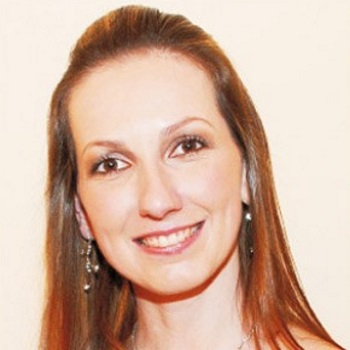
Dr Janine I. Rossato, Federal University of Rio Grande do Norte, Brazil

Dr Janine I. Rossato, Federal University of Rio Grande do Norte, BrazilJanine Rossato, Ph.D. is an Associate Professor in the Department of Physiology at Federal University of Rio Grande do Norte. Her work is centred on memory reconsolidation studies with special attention to how previous knowledge can modulates the occurrence of reconsolidation. Dr Rossato received in 2008 the L’Oreal Prize for young women in science. Dr Rossato received her PhD in Biochemistry with emphasis in Neuroscience from the Federal University of Rio Grande do Sul, Brazil (2006) under the mentorship of Dr Martín Cammarota. In 2015, Dr Rossato completed a Postdoctoral Research in the Centre for Cognitive neural Systems at The University of Edinburgh. Dr Rossato has 2535 citations and her h-index is 26. |
|
| 14:10 - 14:30 |
The impact of suppression on consolidation processes
Synaptic consolidation is a critical process in stabilising the neural representation of episodic experience in the human brain. Synaptic consolidation is not perfectly effective, however, and not all plasticity triggered by experience results in lasting, durable memories. Here the group examined the intriguing possibility that the probability of consolidation may depend, in part, on high-level mental processes that systemically alter the environment within which consolidation takes place. Prior work in humans has shown that intentionally suppressing memory retrieval (retrieval stopping) reduces hippocampal activity via control mechanisms mediated by the lateral prefrontal cortex. In the current work, the group found that when people suppress retrieval given a reminder of an unwanted memory, they are considerably more likely to forget unrelated experiences from periods surrounding suppression. This amnesic shadow follows a dose-response function, becomes more pronounced after practice suppressing retrieval, exhibits characteristics indicating disturbed hippocampal function, and is predicted by reduced hippocampal activity. These findings indicate that stopping retrieval engages a suppression mechanism that broadly compromises hippocampal processes and that hippocampal stabilization processes can be interrupted strategically. This process may operate via a top-down increase in tonic GABAergic inhibition in the hippocampus that compromises plasticity. 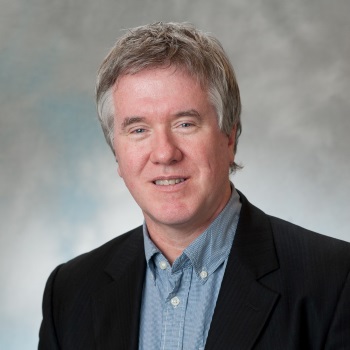
Professor Michael C. Anderson, MRC Cognition and Brain Sciences Unit, University of Cambridge, UK

Professor Michael C. Anderson, MRC Cognition and Brain Sciences Unit, University of Cambridge, UKMichael Anderson received his PhD in cognitive psychology from the University of California, Los Angeles. After completing a post-doctoral fellowship in cognitive neuroscience at the University of California, Berkeley, he joined the psychology faculty at the University of Oregon, where he was director of the Memory Control Laboratory through 2007. Anderson is now Professor of Cognitive Neuroscience at the MRC Cognition and Brain Sciences Unit at the University of Cambridge. His research investigates the roles of inhibitory control processes as a cause of forgetting in long-term memory. Anderson’s recent work has focused on inhibitory control as a model of adaptive forgetting, with an emphasis on control mechanisms by which memory traces of unwelcome past experiences can be disrupted. This work begins to specify the mechanisms by which people adapt the functioning of their memories in the aftermath of traumatic experience. |
|
| 14:30 - 14:50 |
Consolidation of cortical plasticity in sleep: more than meets the eye
Sleep is thought to play an important role in the consolidation of hippocampal-dependent forms of memory. Much less, however, is known about how sleep influences the consolidation of experience-dependent plasticity in the cerebral cortex. The group have shown that sleep enhances synaptic plasticity in the visual cortex in a manner consistent with consolidation, as has been described in the hippocampus. The underlying mechanisms are also shared with those known to be important in memory consolidation. These include the activation of several protein kinases and protein synthesis. Collectively, the groups findings indicate that waking experience creates temporary, labile synaptic changes in the cortex that are then made more permanent during sleep. 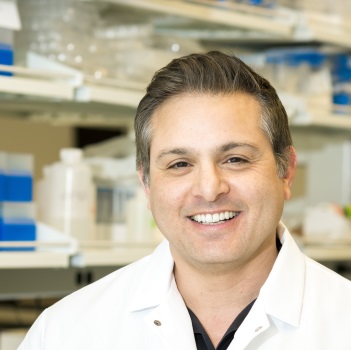
Professor Marcos Frank, Department of Biomedical Sciences, Elson S. Floyd College of Medicine, Washington State University

Professor Marcos Frank, Department of Biomedical Sciences, Elson S. Floyd College of Medicine, Washington State UniversityMarcos Frank received his PhD in Neuroscience at Stanford University and conducted post-doctoral research in the Department of Physiology at the University of California, San Francisco. He was then an Assistant and Associate Professor at the University of Pennsylvania) from 2002-2013. In 2014, Dr Frank joined WSU (now the Elson S. Floyd College of Medicine) as a Full Professor and is currently the Chair of the Department of Biomedical Sciences. Among other discoveries, the Frank lab has shown that sleep consolidates experience-dependent cortical plasticity during critical periods of development. The underlying mechanisms are similar to those that mediate consolidation in the hippocampus. The Frank lab has also shown that similar sleep-dependent processes occur in the adult brain. Work along these lines has appeared in the Journals Neuron, ScienceAdvances, Cerebral Cortex, Current Biology, Proceedings of the National Academy of Sciences, Journal of Neuroscience and SLEEP. Dr Frank is also the author of numerous review articles and book chapters on the topics of sleep function and brain plasticity. |
|
| 14:50 - 15:10 | Coffee Break | |
| 15:10 - 16:00 |
Discussion Session

Professor Paul Frankland, Program in Neuroscience and Mental Health, Hospital for Sick children, Toronto, Canada

Professor Paul Frankland, Program in Neuroscience and Mental Health, Hospital for Sick children, Toronto, CanadaPaul Frankland is a Senior Scientist in the program in Neurosciences & Mental Health at the Hospital for Sick Children. He holds a Canada Research Chair in Cognitive Neurobiology, and is appointed as an Associate Professor in the Department of Psychology, Department of Physiology and Institute of Medical Science at the University of Toronto. His research focuses on modelling cognitive function and dysfunction in genetically-engineered mice. In these studies he hopes to characterize the roles of different proteins in neuronal plasticity, how different brain regions contribute to distinct cognitive processes, and how these are altered in disease states. |
|
| 16:00 - 17:00 | Poster session: New techniques and their application |
Chair

Professor Edwin M Robertson, Institute of Neuroscience and Psychology, University of Glasgow, Scotland

Professor Edwin M Robertson, Institute of Neuroscience and Psychology, University of Glasgow, Scotland
Edwin M Robertson holds the Chair in Brain & Cognitive Sciences at the Institute of Neuroscience & Psychology in Glasgow, UK. He uses a combination of behavioural analysis, brain imaging and brain stimulation to provide insight into the off-line processing of human memory. His work has revealed how the fate of a memory is controlled, the importance of brain state for this control, the degenerate organization of offline processing, and how the interactive organization of memories enables the creation of flexible and generalisable knowledge. Prior to his current position he held a number of faculty positions at Harvard Medical School, was a graduate and a medical student at the University of Oxford, and prior to that, was an undergraduate at the University of Cambridge.
| 09:00 - 09:20 |
Hippocampus-prefrontal cortex interactions during sleep
The recording of large groups of neurons from behaving animals has been instrumental for investigating brain network dynamics, and ultimately information encoding and the generation of behaviour. The group applied these techniques to the study of a complex brain network, centered on the hippocampus, which supports episodic memories throughout their lifetimes. Classically, upon memory encoding during active behaviour, hippocampal activity is dominated by theta oscillations. During inactivity, hippocampal neurons burst synchronously, constituting sharp waves, which can propagate to other structures, theoretically supporting memory consolidation, the PFC as a prominent target. This ‘two-stage’ model has been updated by new data from high-density electrophysiological recordings in animals that shed light on how information is encoded and exchanged between hippocampus and hand PFC. This talk will provide an update on recent results on large scale cortical synchronization events (spanning most of the cerebral cortex) that are orchestrated by the hippocampus. 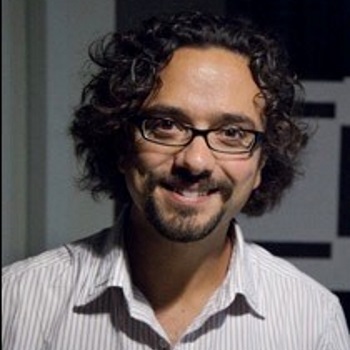
Dr Francesco Battaglia, Donders Institute, Netherlands

Dr Francesco Battaglia, Donders Institute, NetherlandsFrancesco Battaglia is Associate Professor at the Donders Centre for Neuroscience, at the Radboud Universiteit, Nijmegen, previously holding the role of Assistant Professor at the Universiteit van Amsterdam. He has a background in theoretical physics and computational neuroscience. For his PhD, with Dr Alessandro Treves, he worked on the dynamics and statistical mechanics of attractor networks of spiking neurons, providing a link between the theory of attractor networks and the phenomenon of hippocampal place cells. As a post-doc for Dr Bruce McNaughton, he did experimental work on the interactions between the hippocampus and the neocortex during sleep and on properties of hippocampal place cells. At the Collège de France in Paris, in collaboration with the group of Dr Sidney Wiener he extended his work on the interaction between hippocampus and neocortex. As a PI at the Donders Institute in Nijmegen he continues to pursue the investigation of the neural underpinnings of memory and the interaction between cortex and hippocampus. |
|
|---|---|---|
| 09:20 - 09:40 |
Assembly-ing limbic-cortical information processing during non-REM sleep
During behaviour, “cell assemblies” are transiently engaged as functional modules, cooperatively encoding information. However, the extent to which these same assemblies are reactivated during sleep remains unclear. To characterize distributed assemblies spanning posterior parietal cortex (PPC), medial prefrontal cortex (mPFC) and dorsal CA1 of the hippocampus (dCA1), we performed triple-site local field potential (LFP) and multiple single unit recordings in rats learning a spatial decision-making task, and during rest immediately before and after each training session. During non-REM, a coherent 5–8 Hz LFP oscillation spanning mPFC-PPC emerged during 8–15 Hz spindles. mPFC cells that phase-locked strongly to PPC 5–8 Hz oscillations were also more strongly phase-locked to the dCA1 theta rhythm during wake, and were more likely to be rate-modulated during hippocampal ripples. Thus mPFC cells tuned to dCA1 during wake are predisposed to participate in long-range 5–8 Hz cortico-cortical coordination during non-REM. This array of covariant activity was associated with recruitment of cell assemblies spanning dCA1-mPFC and PPC, many of which showed activation/inhibition specifically around ripple or spindle times. Assemblies recruited during task performance were more strongly modulated during post-task sleep, potentially reflecting experience-dependent plasticity and integration of memory traces across limbic-cortical circuits. 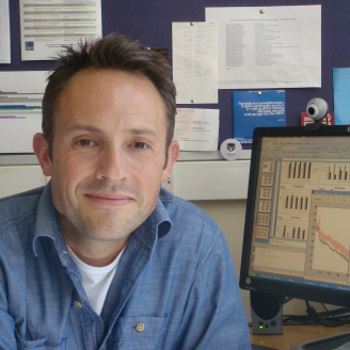
Dr Matt Jones, University of Bristol, UK

Dr Matt Jones, University of Bristol, UKAs an undergraduate, I went up to Cambridge to read Chemistry, bonded more strongly with Pharmacology and was ultimately only sated by Neuroscience. Prompted by an in vivo electrophysiological project during my final year, I then spent the three years of my Ph.D. investigating the neurophysiology and pharmacology of spinal nociceptive processing (with Max Headley in Bristol). I next slithered up the CNS to the hippocampus, spending my first postdoctoral stint with Tim Bliss in London, where I used in vivo field potential recordings and genetically altered mice to examine mechanisms and roles of synaptic plasticity. Having come to appreciate the power of electrophysiology in behaving animals, a Wellcome Trust International Prize Travelling Fellowship then flew me to MIT where I learned multi-neuron recording techniques from Matthew Wilson and transgenic trickery from Susumu Tonegawa – this introduced me to hippocampal “replay” and sleep. I returned to Bristol to establish a lab as an RCUK Academic Fellow in 2006 and became a Medical Research Council (MRC) Senior Research Fellow in April 2011. |
|
| 09:40 - 10:00 |
Hippocampal-cortical interactions during sleep: behaviour matters
Distinct forms of memory consolidation (cellular and systems) influence the persistence of spatial memory within the hippocampus (cellular) and following hippocampal-neocortical interactions (systems). Factors influencing these processes include: (1) novelty exposure that enhances the persistence of hippocampal traces via neuromodulation; and (2) sleep that aids systems consolidation and thus cortical memory. In a sequence of experiments, the group could show that sleep leads to systems consolidation via learning-dependent cortical consolidation. In contrast, novelty tags a memory to remain more hippocampal by increasing gene expression. Further, evidence will be shown that different behaviour such as novelty and normal learning influence hippocampal-cortical communication during subsequent sleep and such behaviours after learning influence the behavioural expression of memory. 
Dr Lisa Genzel, Radboud University, The Netherlands

Dr Lisa Genzel, Radboud University, The NetherlandsLisa Genzel studied medicine at the Ludwig Maximilian University in Munich and in parallel worked on her thesis on sleep and memory consolidation in humans at the Max Planck Institute of Psychiatry. For her experiments she worked both with healthy subjects as well as psychiatric patients with depression and schizophrenia. As a post-doc she decided to expand into animal research and went to the University of Edinburgh to work with Richard Morris. More recently she received the Society in Science Branco-Weiss-Fellowship to be able to combine human and animal research investigating the basic mechanisms of memory consolidation especially during sleep and now is an Assistant Professor at the Donders Institute in Nijmegen. |
|
| 10:00 - 10:20 |
Targeted memory reactivation during slow-wave sleep, functional brain connectivity changes and their relation to memory stabilization
Post-learning memory replay, especially during slow-wave sleep is thought to enhance memory consolidation. However, this process has been scarcely studied in detail using fMRI data acquired during deep sleep. Data from participants that studied object-location-sound associations will be discussed in this talk. Half of these sounds were presented as cues during post-learning sleep to externally trigger memory replay. Cueing of associated memories during sleep did not produce an overall effect on memory retention. However, there were large inter-individual differences in the effect of cueing, which the group sought to explain using our imaging data. Specifically, the group looked at complex connectivity patterns during cueing with object-related and unrelated control-sounds. The presentation of object-related sounds was specifically associated with increased network participation of early visual cortex. This increased network involvement was positively related to overnight memory retention. Moreover, early visual cortex displayed enhanced connectivity during targeted reactivation with the hippocampus, parahippocampal cortex, thalamus, dorsomedial prefrontal cortex and anterior cingulate cortex and parietal cortex. Together, these results are indicative of externally cued replay that might be. 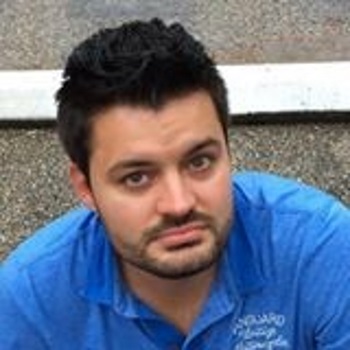
Ruud Berkers, Donders Institute for Brain, Cognition & Behaviour, RadboudUMC, Netherlands

Ruud Berkers, Donders Institute for Brain, Cognition & Behaviour, RadboudUMC, NetherlandsRuud Berkers is currently a postdoctoral fellow at the Max Planck Institute for Human Cognitive and Brain Sciences in Leipzig, working with Dr Roland Benoit on episodic future thinking and prefrontal cortex functioning. He completed his studies in Cognitive & Clinical Neurosciences at Maastricht University, doing a graduate research project in the labs of Nikolaus Kriegeskorte and Simon Baron-Cohen working on object vision in autism. He went on to complete a PhD project at the Donders Institute in Nijmegen, working with Professor Guillen Fernandez on an ERC-project investigating knowledge acquisition and consolidation. There he employed functional MRI and TMS to study factors influencing knowledge acquisition and retention. |
|
| 10:20 - 10:40 | Coffee Break | |
| 10:40 - 11:30 |
Discussion Session

Professor Loren Frank, HHMI and University of California, USA

Professor Loren Frank, HHMI and University of California, USALoren Frank is Howard Hughes Medical Institute Investigator, Co-Director of the Kavli Institute for Fundamental Neuroscience and a Professor in the Department of Physiology at the University of California, San Francisco. He received his BA in Psychology and Cognitive studies from Carleton College, his PhD in Systems Neuroscience and Computation from M.I.T, and did post-doctoral research at Massachusetts General Hospital and Harvard University. His laboratory uses a combination of techniques to study the neural bases of learning, memory and decision-making. Dr Frank has received numerous awards for his scientific discoveries and his mentoring, including fellowships from the Sloan, McKnight and Merck Foundations as well as the Society for Neuroscience Young Investigator Award, the University of Indiana Gill Young Investigator Award, the UCSF Faculty Mentoring Award, and the College Mentors for Kids Inspire Award. |
|
| 11:30 - 12:30 |
Hippocampal - cortical interactions underlying memory processes
Hippocampal memory reactivation during sharp-wave ripple (SWR) events has been linked to memory processes during both sleep and waking, but how these events engage structures outside the hippocampus remains only partially understood. These results will be presented here first; from simultaneous recordings of hippocampal and auditory cortical (AC) activity during sleep. The group found that there is a rapid cortical-hippocampal-cortical loop of information flow around the times of SWRs: patterned activation in AC precedes and predicts the subsequent content of hippocampal activity during SWRs, while hippocampal patterns during SWRs predict subsequent AC activity. These findings suggest that the activation of specific cortical representations during sleep influences the identity of the memories that are consolidated into long-term stores. The groups investigations into the organization of memories in both the hippocampus and cortex will then be discussed. While event memories have identifiable beginnings and ends, ongoing experience proceeds continuously. The neural mechanisms that transform the stream of neural activity patterns representing ongoing experience into discrete episodes are unknown. The group examined simultaneous hippocampal and prefrontal activity patterns and identified discrete neural codes and discrete patterns of reactivation for different types of experience. These discrete representations suggest a mechanism for creating boundaries between temporally adjacent experiences. 
Professor Loren Frank, HHMI and University of California, USA

Professor Loren Frank, HHMI and University of California, USALoren Frank is Howard Hughes Medical Institute Investigator, Co-Director of the Kavli Institute for Fundamental Neuroscience and a Professor in the Department of Physiology at the University of California, San Francisco. He received his BA in Psychology and Cognitive studies from Carleton College, his PhD in Systems Neuroscience and Computation from M.I.T, and did post-doctoral research at Massachusetts General Hospital and Harvard University. His laboratory uses a combination of techniques to study the neural bases of learning, memory and decision-making. Dr Frank has received numerous awards for his scientific discoveries and his mentoring, including fellowships from the Sloan, McKnight and Merck Foundations as well as the Society for Neuroscience Young Investigator Award, the University of Indiana Gill Young Investigator Award, the UCSF Faculty Mentoring Award, and the College Mentors for Kids Inspire Award. |
|
| 12:30 - 13:30 | Lunch |
Chair

Dr Lisa Genzel, Radboud University, The Netherlands

Dr Lisa Genzel, Radboud University, The Netherlands
Lisa Genzel studied medicine at the Ludwig Maximilian University in Munich and in parallel worked on her thesis on sleep and memory consolidation in humans at the Max Planck Institute of Psychiatry. For her experiments she worked both with healthy subjects as well as psychiatric patients with depression and schizophrenia. As a post-doc she decided to expand into animal research and went to the University of Edinburgh to work with Richard Morris. More recently she received the Society in Science Branco-Weiss-Fellowship to be able to combine human and animal research investigating the basic mechanisms of memory consolidation especially during sleep and now is an Assistant Professor at the Donders Institute in Nijmegen.
| 13:30 - 13:50 |
What is the role of deficient sleep-dependent memory consolidation in schizophrenia?
Although schizophrenia is defined by waking phenomena, abnormal sleep is a common feature. In particular, there is accumulating evidence of a sleep spindle deficit. Sleep spindles correlate with IQ and are thought to promote long-term potentiation and enhance memory consolidation. This talk will review evidence that reduced spindle activity in schizophrenia is an endophenotype that impairs sleep-dependent memory consolidation, cognitive function more generally, contributes to symptoms and is a novel treatment biomarker. Studies showing that spindles can be pharmacologically enhanced in schizophrenia and that increasing spindles improves memory in healthy individuals suggest that treating spindle deficits in schizophrenia may improve cognition. This talk will highlight the importance of deficient sleep-dependent memory consolidation among the cognitive deficits of schizophrenia and implicate reduced sleep spindles as a potentially treatable mechanism. The ultimate goal of this research program is to forge empirical links in causal chains from risk genes to proteins and cellular functions, through to endophenotypes, cognitive impairments, symptoms and diagnosis, with the hope of advancing the mechanistic understanding and treatment of schizophrenia. 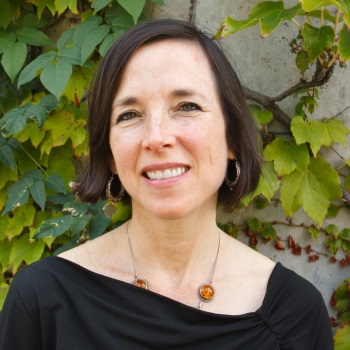
Professor Dara Manoach, Harvard Medical School, USA

Professor Dara Manoach, Harvard Medical School, USADara Manoach is a neuropsychologist whose research program uses neuroimaging techniques to illuminate the neural and genetic bases of fundamental cognitive deficits in neuropsychiatric and neurodevelopmental disorders, particularly schizophrenia and autism. The ultimate goal of this work is to guide the development of targeted treatments. Her primary area of inquiry focuses on the contribution of abnormal sleep to memory consolidation deficits in schizophrenia. A second line of research focus investigates the contribution of aberrant functional and structural brain connectivity to core features of schizophrenia and autism. Dr. Manoach is a Professor of Psychology in the Department of Psychiatry at Massachusetts General Hospital and Harvard Medical School. She received her doctorate from Harvard University in Experimental Psychology, completed a clinical psychology internship at McLean Hospital and a postdoctoral fellowship in clinical neuropsychology at Beth Israel Hospital of Harvard Medical School. She directs the Laboratory for Multimodal Neuroimaging of Cognition in Psychopathology (Manoach Lab) in the Psychiatric Neuroimaging Division of the Department of Psychiatry at the Athinoula A. Martinos Center for biomedical imaging. |
|
|---|---|---|
| 13:50 - 14:10 |
Flexibility of threat-related responses and episodic memory in humans upon reactivation
Contemporary research suggests that a reminder can reactivate and temporarily renew flexibility of a consolidated memory requiring restabilization mechanisms to be maintained, referred to as reconsolidation. Reconsolidation raises the intriguing opportunity to modify specific memories and holds great clinical potential as it may enable targeting and changing of maladaptive learned responses and memories that contribute to psychiatric disorders. A major accomplishment of memory research is the recognition that there are multiple memory systems that underlie different forms of behavioural expression, which may contribute to distinct symptoms in psychopathology. The majority of evidence for reconsolidation, however, comes from Pavlovian fear-conditioning studies that suggest that learned threat responses can again become flexible but that episodic memories remain stable. As a result it is unclear if reconsolidation also occurs in other memory systems, especially in humans. In this talk studies will be discussed investigating renewed flexibility of both threat responses and episodic memories in humans. It will be shown that episodic memories also undergo reconsolidation but that the efficacy of interventions to modify more complex forms of memory is limited. In addition, discussion will consider that if interventions targeting reconsolidation fail or affect other mnemonic mechanisms they may do more harm than good. 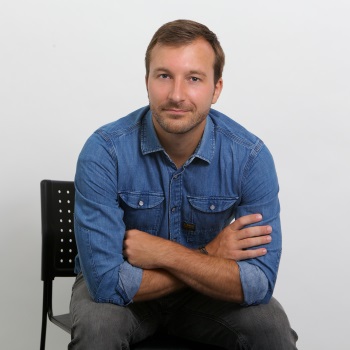
Dr Marijn Kroes, Department of Psychology and Center for Neural Science, New York University, USA

Dr Marijn Kroes, Department of Psychology and Center for Neural Science, New York University, USAMarijn Kroes received a PhD from the Radboud University Nijmegen under supervision of Professor Dr Guillen Fernandez and is currently a postdoctoral fellow with Professor Dr Elizabeth Phelps and Professor Dr Joseph LeDoux at New York University. His research focuses on the flexibility of memory and tries to discover methods to attenuate or strengthen existing memories. His work aims to identify signatures of memory from brain activity and to understand how changes in activity and connectivity in the brain support memory flexibility in rodents and humans. The final goal is to determine how this knowledge can be utilized to optimize treatments for psychiatric patients. |
|
| 14:10 - 14:30 |
Exploiting reconsolidation update mechanisms to reduce intrusive trauma memories of experimental trauma using cognitive tasks (Tetris)
Intrusive memories of a trauma event comprise the core clinical feature of disorders such as acute stress disorder and post-traumatic stress disorder (PTSD). Therefore, the group are particularly interested in intrusive memories - i.e. memories that intrude to mind unbidden following a traumatic event in the form of emotional mental imagery. In an experimental psychopathology approach using the trauma film paradigm, human participants view film-footage with traumatic content in the lab. The frequency of intrusive memories is monitored in a daily-life over one week. Experiments will be discussed showing that (i) a cognitive task designed to interfere with the consolidation of visual memory for experimental trauma, reduces the frequency of subsequent intrusive memories, for example the computer game Tetris. (ii) The frequency of intrusive memories for established (24h old) memories of experimental trauma can be reduced using a visuospatial task. Memory reactivation plus Tetris game-play (“cognitive blockade”) led to fewer intrusions compared to either memory reactivation or Tetris game-play in isolation. Findings suggest a brief “cognitive therapeutic vaccine” after trauma may offer a non-invasive method to ameliorate intrusive memories by exploiting consolidation / reconsolidation update mechanisms. 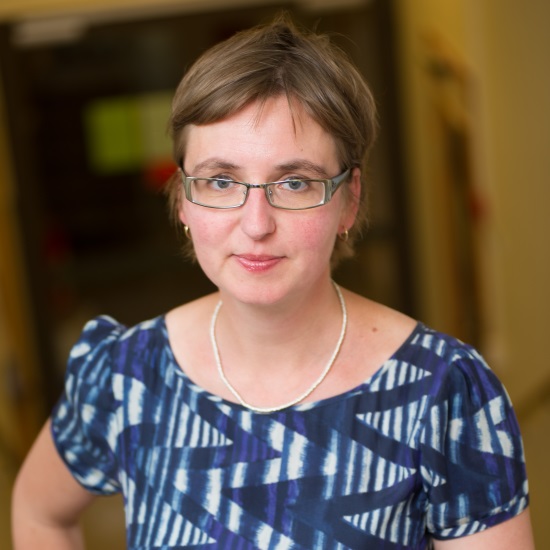
Professor Emily Holmes, Karolinska Institute, Sweden

Professor Emily Holmes, Karolinska Institute, SwedenEmily is Professor of Psychology at the Karolinska Institutet in Stockholm. She is a clinical psychologist and cognitive neuroscientist. The work in her research group is underpinned by a core interest in mental health science, and the translation of basic findings to create innovations to improve psychological treatments to reach more people. The research takes an interdisciplinary approach including psychology, psychiatry, cognitive science, neuroscience and so forth. Her group is particularly interested in the powerful impact of mental imagery on emotion. This research is being used to develop solutions in areas where we lack treatments – such as to prevent the build-up of symptoms soon after a traumatic event, and innovative treatments for refugee trauma - approaches which ultimately can help benefit the many people affected by trauma worldwide. Emily is also a Visiting Professor in Clinical Psychology at the Department of Psychiatry at the University of Oxford, holds an Honorary Appointment at the MRC Cognition and Brain Sciences, Cambridge, UK and is a Fellow of Clare Hall, University of Cambridge. She is Associate Editor of 'Behaviour Research and Therapy'. Her research has been recognised by the British Psychological Society’s Spearman Medal (2010), Humboldt Foundation Friedrich Wilhelm Bessel Research Award (2013), and the American Psychological Association (2014). She is on the Board of Trustees and Chair of the Fellows Committee of the research charity ‘MQ; transforming mental health.’ |
|
| 14:30 - 14:50 |
The importance of circuit-specific bidirectional synaptic plasticity during sleep dependent memory consolidation and reconsolidation and the implications of maladaptive sleep for mental health disorders.
This talk will present evidence and arguments that consolidation and reconsolidation failures induced by a variety of causes (sleep restriction, weak spindles, brain injury, anaesthesia) lead to mental and neurological health issues such as PTSD, Autism, Schizophrenia, and Alzheimer’s disease. Studies from the group’s lab and others indicate that specifics of timing of neural and local field potential patterning and the neurochemical milieu in which consolidation and reconsolidation occur both strongly impact the efficacy of consolidation ad reconsolidation, and that failures in one or some these factors will impact cognition and contribute to disease. The group argue that interventions that normalize the reconsolidation environment can set an organism back on the path from disease to health. 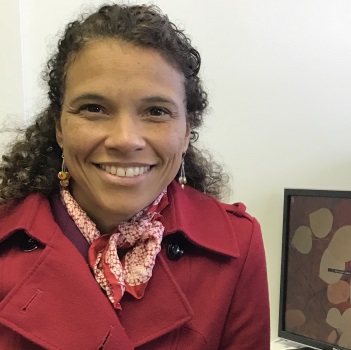
Professor Gina R. Poe, Department of Integrative Biology and Physiology and Department of Psychiatry, UCLA, USA

Professor Gina R. Poe, Department of Integrative Biology and Physiology and Department of Psychiatry, UCLA, USADr Poe graduated from Stanford University in 1987, completed her Ph.D. in Neuroscience in 1995 studying sleep and hippocampal activity with reflectance optical imaging under Ron Harper at UCLA, and did her postdoctoral research in aging and learning tetrode recording in the labs of Carol Barnes and Bruce McNaughton in 1998. In her first faculty position at Washington State University she earned an NIH grant to study mechanisms whereby REM sleep serves memory. In 2001 she moved to the University of Michigan and continued exploring the neurochemical and elecrophysiological patterns of hippocampal cells during sleep serving learning, discovering that REM sleep and non-REM sleep spindles offer unique opportunities to weaken synaptic networks associated with unnecessary or incorrect memory elements. Her lab just moved back to UCLA and continues to uncover the mechanisms behind memory consolidation during sleep with implications for mental health, including PTSD, depression, schizophrenia, Alzheimer's disease and autism. |
|
| 14:50 - 15:10 | Coffee Break | |
| 15:10 - 16:00 |
Discussion Session

Professor Paul Frankland, Program in Neuroscience and Mental Health, Hospital for Sick children, Toronto, Canada

Professor Paul Frankland, Program in Neuroscience and Mental Health, Hospital for Sick children, Toronto, CanadaPaul Frankland is a Senior Scientist in the program in Neurosciences & Mental Health at the Hospital for Sick Children. He holds a Canada Research Chair in Cognitive Neurobiology, and is appointed as an Associate Professor in the Department of Psychology, Department of Physiology and Institute of Medical Science at the University of Toronto. His research focuses on modelling cognitive function and dysfunction in genetically-engineered mice. In these studies he hopes to characterize the roles of different proteins in neuronal plasticity, how different brain regions contribute to distinct cognitive processes, and how these are altered in disease states. |
|
| 16:00 - 16:45 | Blitz session: New techniques and their application | |
| 16:45 - 17:00 | Summary of discussions |
